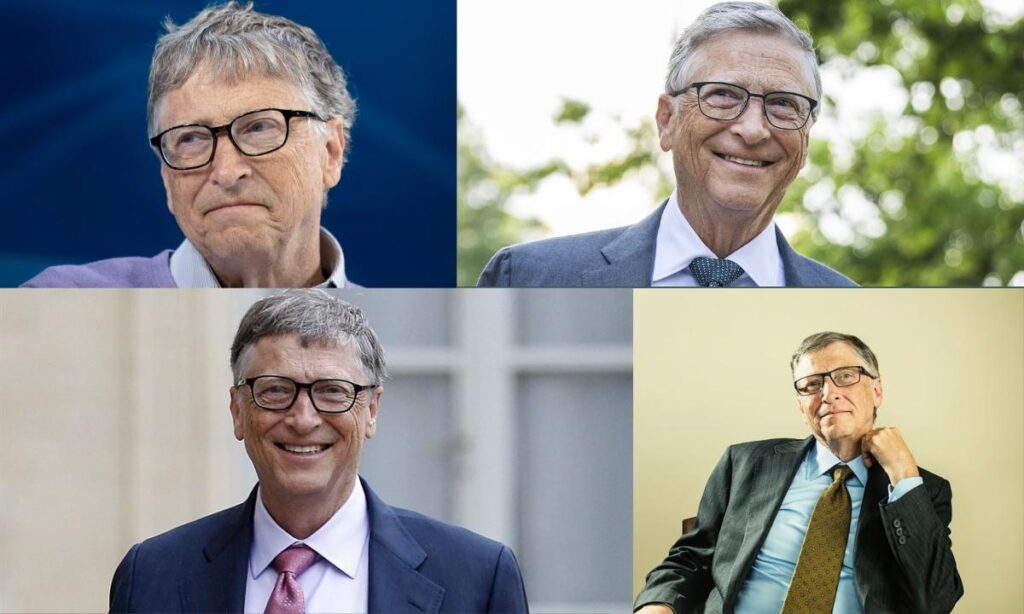If you ask, Who is the Most Powerful Doctor in the World? Unintentionally, the name, Bill Gates, may come to mind first. Although Gates is not a medical doctor by background, his ideas and impact on health and organizations related to the disease all over the world through his, health philanthropy and leadership in global health organizations have made Gates be referred to as one of the most influential personality in the medical and Humanitarian fraternity. Gates, through his organization, the Bill and Melinda Gates Foundation, has transformed the face of Global Health as an influential fighter against infectious diseases, a key international actor in healthcare system reinforcement and a/AIDS a key shaper of health policies Internationally.
The Bill and Melinda Gates Foundation: A Leader in Global Health
The Bill and Melinda Gates Foundation was established in 2000 and has since climbed the ranks to become among the most dominant funding agency for health as a whole in the world. In approximately fifteen years, it has committed billions of dollars to eradicate poverty and provide health services such as disease control, child inoculations, and maternal care. Yet Gates’s passion to eliminate diseases and recently polio is funding the foundation to be a big supporter of health organizations such as the WHO.
Indeed, the Bill and Melinda Gates Foundation is a major funder of the WHO and currently ranks second only to the United States. These contributions have been very helpful to the foundation in solving some of the biggest health challenges facing the globe such as polio eradication, malaria and HIV/AIDs. Gates’s financial support today has placed him in a strategic location that allows him to decide on how the world’s health agenda will be shaped and where and how global resources need to be allocated to address pressing global health needs.
Shaping Global Health Policies
Obviously Gates does not just donate money to the served institutions but rather impacts their policies in health. He has used his foundation to guide the WHO agenda and transform the health agenda within developing nations. Thanks to the significant funds which the foundation was able to allocate towards the field of health, it was also able to advocate for policies to be put in place which the foundation favours. For instance an area that Gates has been very involved is funding for polio eradication and most of the foundation funding has been channeled towards this area.
It has also offered some support toward other health related programs like maternal and child health, vaccination and the rest of the infectious diseases including TB & Malaria. Through financial support for these programs as well as for lobbying for changes in these policies, the Gates Foundation has assumed the role of a leader for formulating health policies in the global sphere and the welfare of these causes.
Furthermore, through his philanthropic work, Gates has brought together large funders, interested parties and governments to amplify agreed goals in the area of health. These commitments also guarantee that health programmes are integrated when ministries meet and subsequently liaise or consult with WHO and other health organisations as planned. The case on the Netsuit foundation describes shows that Gates has been able to mobilise all the necessary players to support advancing health causes globally.
Criticisms and Controversies
Although the Gates Foundation has offered a lots of benefits, the role played by Gates in determining the future of world health is still burr. Perhaps the most serious of these concerns has been the claim that by centralizing power in the hands of a single private foundation, his words, a lot of other countries, especially the small and less-powrerful ones will be given little chance to air their views. While the foundation may targeting disease such as polio commending worthy, the critics have argued it means that other equally important diseases may not be accorded adequate attention.
Also, there has been criticism in the organisations that Gates have close relations with, claim that he has conflicts of interests. Indeed, the funding by the foundation of large pharma for instance has led some people to contend that the financial ties have changed some of priorities of the foundation, and the projects it funds. Some public health advocacy organizations have argued that Gates Foundation’s collaborative relationships with corporations may cause the WHO’s campaigns to reflect the priorities of the globe’s largest businesses over global public health requirements of the world’s poorer communities.
Preserving the Independence of Who

In response to these issues, WHO has put in place measures taken with the view of protecting its autonomy and thus correct theBias case of dominance by such private players as the Gates Foundation but member countries. The WHO’s 194 member states collectively determine the organisation’s focus and activity; the foundation can only support initiatives which fit decisions made at the organisation level. This does the WHO good in that its work continues to reflect the global approach to health needs and not a particular donor’s while funding it at the same time.
Besides, the partnership between the Gates Foundation and the WHO is guided by the memorandum of understanding in which policies and procedures detailing Gates Foundation’s participation in health policies and processes have been stipulated. This agreement underlines the need to harmonise the work of the foundation with WHO’s work in order not to monopolise this organisation.
Polio Eradication: A Landmark Achievement
Another important success of the Bill and Melinda Gates Foundation is the fight against polio worldwide. Using bacterial polio vaccine and campaign supported by Gates Foundation, polio disease which crippled children has experienced reduced cases dramatically. The funding provided by the foundation together with advocacy works to have ensured that many children are vaccinated to avoid the disease.
Polio has been on of the foundation’s major focus areas in a bid to address the diseases that affect the world’s population. But since this strategy has proved successful, there has risen question on the distribution of resources. With the reduction of polio cases, there are fears that the foundation would divert this program which used to benefit from most of its resources. Others fear this may result in reduced funding for the disease resulting in slowing down of progress towards combating it.
In response to these issues, Gates Foundation in collaboration with the WHO and other relevant partners has been developing a transition plan that will assure funding for polio eradication will continue when the disease is declared. This forward planning approach retains the momentum as far as polio eradication is concerned and also ensures that other health factors get their due attention.
The Future of Global Health
Where Gates goes from here in global health and where his influence will take the sector are two questions that still await answers. The Gates Foundation’s work undoubtedly has had a huge positive impact on health of populations especially in relation to infectious diseases. However as the foundation begins to move to other emerging health issues that include non-communicable diseases and health systems the question of how the foundation influences the global health agenda will again be asking.
There can be very little doubt that about Bill Gates and his impact on global health. Working via his foundation, he came close influencing the global health policies, and directing billions of dollars to support the campaign towards improved global health standards besides being instrumental in spearheading change across some of the most daunting health struggles confronting the world today. It is for this reason that his status ‘most powerful doctor in the world’ can be taken with a pinch of salt but at the same there is no doubt that Ghanem has a rightful place among the famous influential personalities of Global health.
Conclusion
While currently he does not possess a medical degree ever since he gained influence over the global health policies and programs, a lot has changed. The co-chair of the Bill and Melinda Gates Foundation, he’s personally been involved in addressing some of the world’s greatest health concerns, or lack thereof, including polio eradication and health-system infrastructure. It can be therefore said that his influence on the global health agenda resulted from substantial funding but notably also from his ability to mobilise important players.
Despite these controversies, no one could doubt that Gates played a critical role in the development of the cause of global health. While new diseases are cropping up over the world today, Gates’ contribution to global health will remain seminal as the world advances towards its future in terms of health.
FAQs
Bill Gates was the co-founder of the foundation in charge of funding key global health goals such as containing illness scourges like polio.
Bill Gates is not a medical doctor no. Although he is a businessman and a philanthropist, his impact on international health policies and programmes makes and puts him among the influential figures in the field of medicine.
It has committed over US$ billions on international health and this organization has shaped the health systems, policies and financing of high impact diseases including poliomyelitis, malaria and the human immunological deficiency virus/ acquired immunodeficiency syndrome.
Through financial contributions and collaboration with organizations like the WHO, the Gates Foundation shapes health agendas, advocates for specific priorities like polio eradication, and convenes major stakeholders to align on global health issues.
Yes, some critics argue that the Gates Foundation’s focus on specific diseases like polio may overshadow other health priorities and raise concerns about the potential for conflicts of interest due to its corporate investments.
Also read About:

